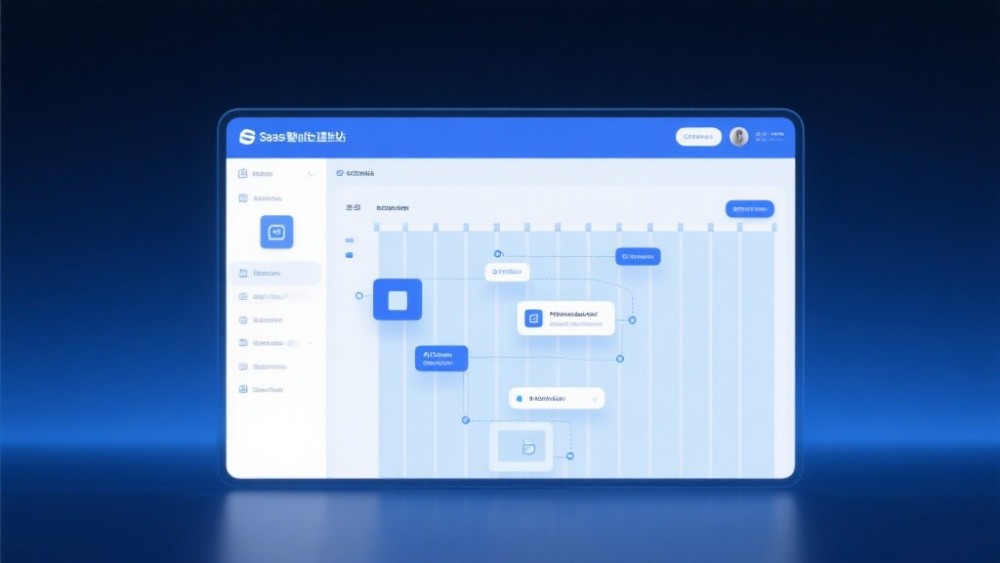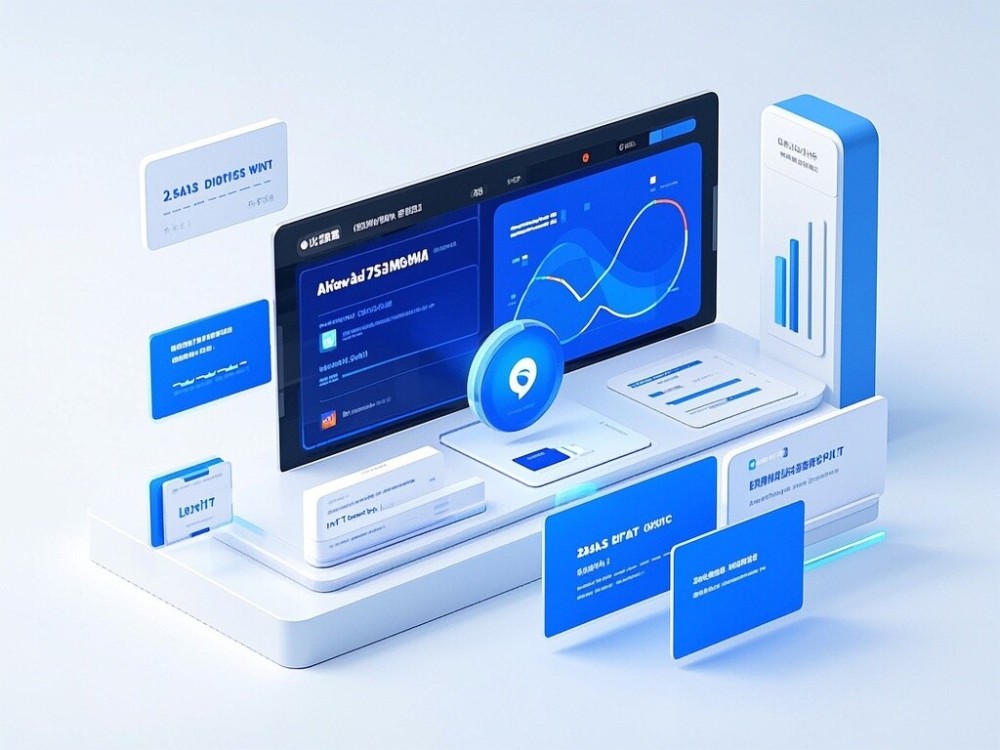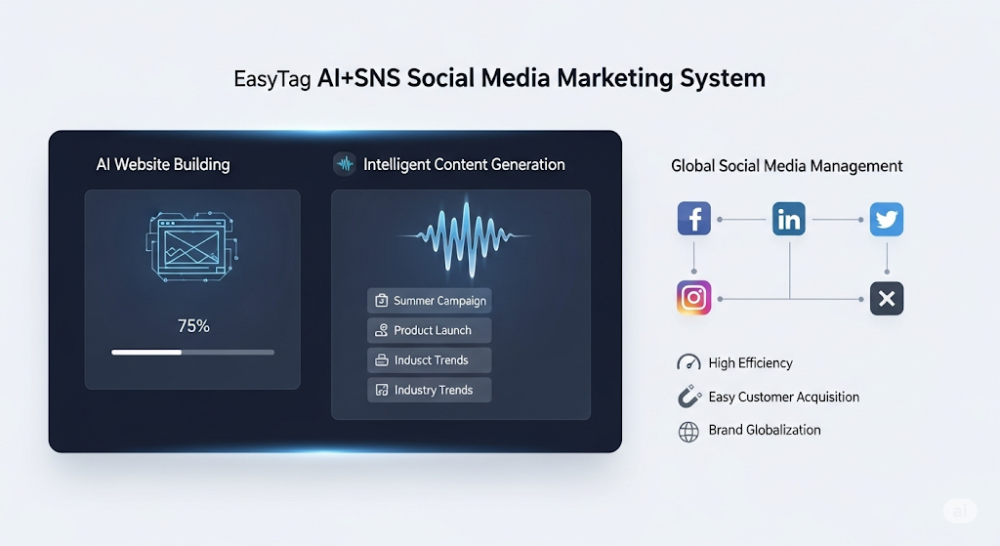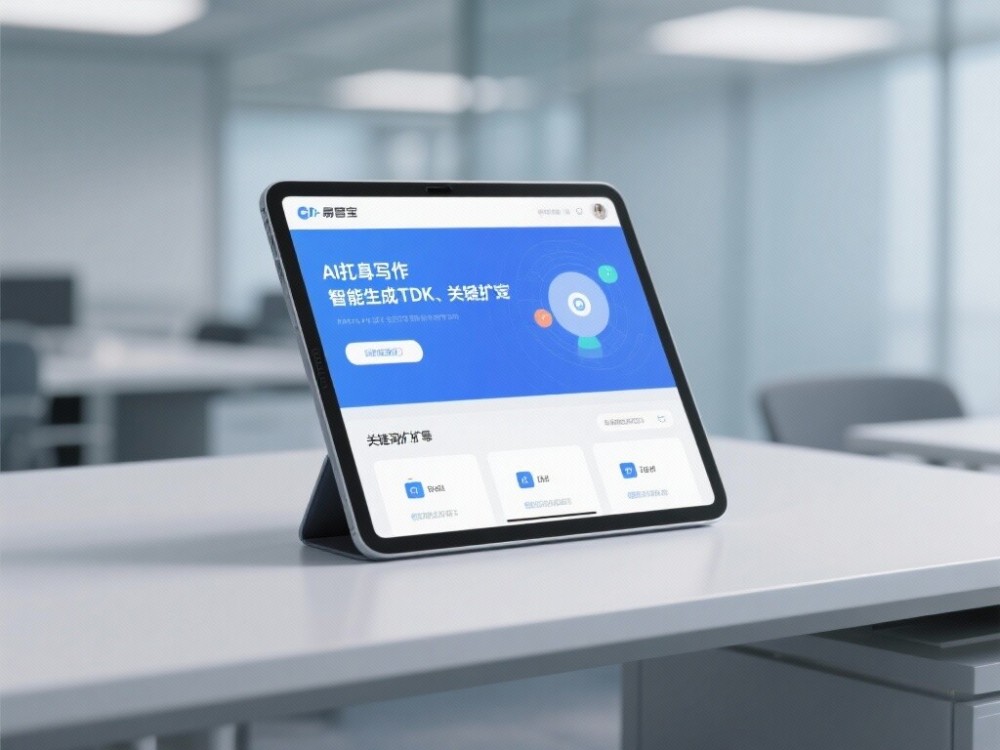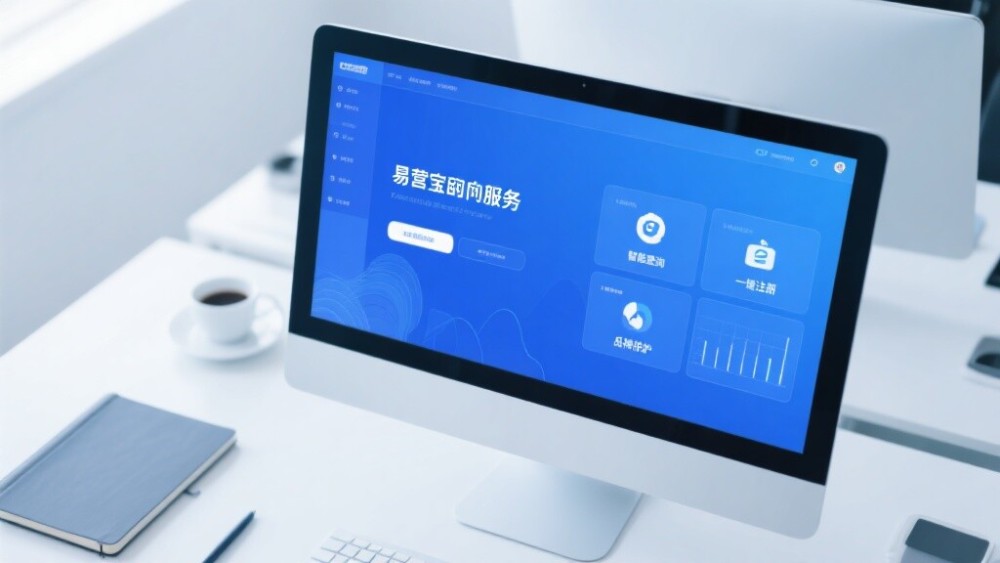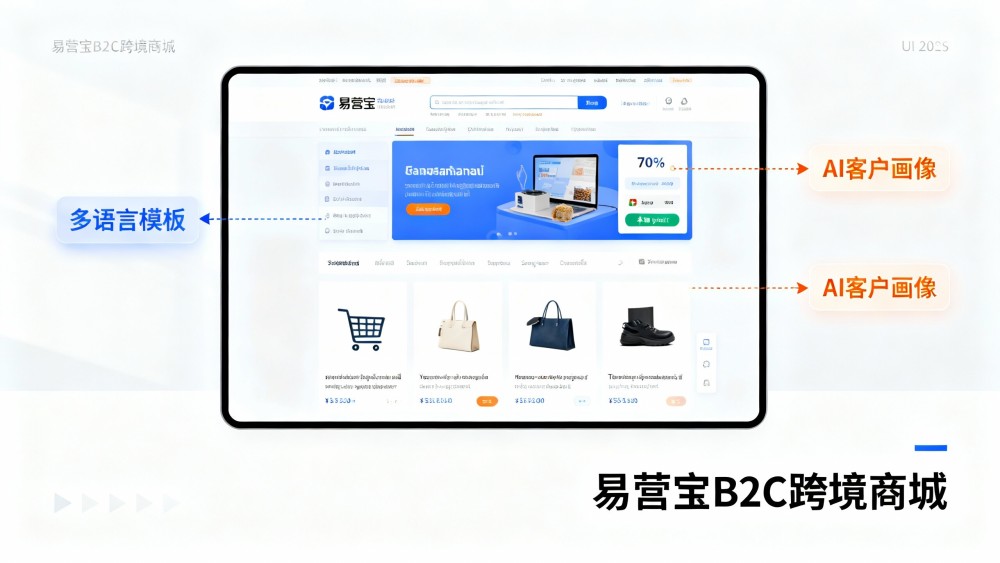- How to effectively promote a multilingual foreign trade website after its construction? — Based on the German website's search traffic stability validation method after revision2026-02-01View details
- Which industries are suitable for multilingual marketing systems? — Cross-border e-commerce technology leaders evaluate global traffic acquisition adaptability as a decision-making basis2026-01-31View details
- Recommended Arabic independent website construction companies for 2024: Reliable service provider rankings2026-01-29View details
- How is Easy Operation Treasure's foreign trade inquiry service? Real customer feedback and effectiveness evaluation2026-01-29View details
- Can Yiyingbao's multilingual foreign trade website building service improve overseas lead conversion? Enterprise test report2026-01-27View details
- Is Yiyingbao's intelligent website building system good? See real user experiences and ROI cycles from enterprise clients2026-01-27View details
- What features are needed for a Middle East market website system? 2024 cross-border enterprise selection list exposed2026-01-28View details
- How much can ad conversion rates improve after using Eyingbao? Real data reveals the true effectiveness of AI optimization2026-01-30View details
Facebook vs Google: Foreign trade inquiry differences revealed, which one do you know better?
In the field of foreign trade, Facebook and Google are two major customer acquisition platforms, each with its own unique charm and advantages. So, when customers initiate inquiries through these two platforms, what are the differences between them? And how can we accurately grasp and effectively follow up? Next, let us unveil this mysterious veil together.
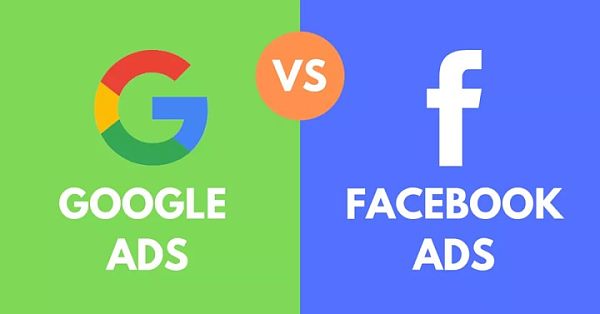
1. Customer source channel: social drive vs search intent
1. Facebook: Potential customers in social networks
Facebook, as the world's largest social platform, often has its customers rooted in a deep social network. Users here not only share their daily lives, but also spread information about brands and products invisibly. Imagine that when your friend shares a clothing brand's page on Facebook, you are deeply attracted by the beautiful pictures of clothing, and you also have the urge to consult? These customers are influenced by the social circle, and they pay more attention to the social recognition and reputation of the brand. Because of their love for a certain brand, they may take the initiative to join related groups, discuss products with like-minded people, and share their experience. In such an atmosphere, customers' consulting behavior is often more casual, and they pay more attention to the social value and personalized experience of the product.
2. Google: Active searchers with clear needs
Unlike Facebook, Google's customers are more likely to come based on clear purchasing intentions. They actively look for products or services that meet their needs by entering keywords in the search engine, such as "cost-effective laptop recommendation". These customers tend to be more direct and professional in their inquiries because they already have a clear understanding of their needs and are just looking for the most suitable solution. On Google, a company's search ranking and ad display are crucial, as they directly determine whether customers can find you in the first place and initiate inquiries.
2. Consulting motivation and focus: experience first vs. function first
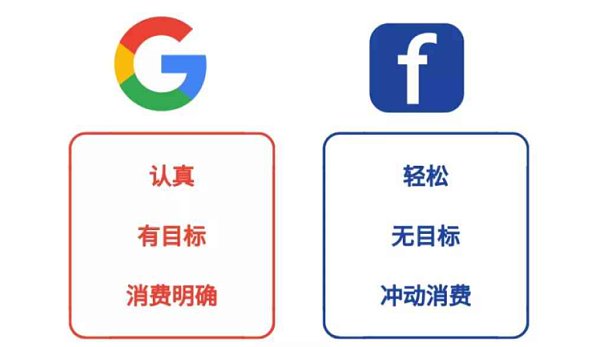
1. Facebook: Pursuing product experience and social value
Customers who consult on Facebook pay more attention to the actual use experience of the product and the value the product can bring to their social life. They may ask: "Does this dress look good in photos? Will it be too eye-catching to wear it to a party?" At the same time, they also pay special attention to the brand's social image, such as whether the brand actively assumes social responsibility and whether it often holds fan interaction activities. They expect to establish a deep emotional connection with the brand and receive personalized services, such as customized products and quick replies.
2. Google: Focusing on both functional details and cost-effectiveness
Customers on Google are more pragmatic and pay more attention to product features, technical parameters and prices. They may ask in detail: "What is the performance of the processor of this computer? Are there other colors available? Is there any discount on the price?" They hope to find the solution that best meets their needs, rather than just pursuing the social attributes of the brand. Therefore, on Google, companies need to pay more attention to the accuracy and completeness of product information, as well as the rationality of pricing strategies.
3. Consulting style and approach: casual conversation vs. professional and direct
1. Facebook: Conversational consultation, emotional connection
On Facebook, customers’ consultation style is often more casual, more like a conversation between friends. They may leave a message in the comment section of the brand page: “Hey, I saw your new product, can you tell me more details?” Or send a short message through Facebook Messenger: “Is there any other color available for this product?” During the consultation process, customers may have obvious emotional colors, such as love or complaints about the brand, which requires companies to respond in a more humane way.
2. Google: Professional consulting, focusing on efficiency
In contrast, customers on Google are more professional and direct. They may fill in their questions in detail through the contact form on the company's website, or make formal inquiries via email. They hope that their questions can be answered quickly and accurately, because they are actively looking for solutions when consulting, and time cost is crucial to them. Therefore, companies need to establish an efficient consultation response mechanism to ensure that customer issues can be handled in a timely manner.
4. How to effectively follow up on Facebook inquiries?
For the steel industry, inquiries on Facebook often mean the arrival of large orders. So, how to follow up these inquiries effectively? First, companies need to establish a professional customer service team to ensure that they can respond to customer inquiries in a timely manner. Secondly, they need to have a deep understanding of customer needs and pain points and provide personalized solutions. At the same time, they can also enhance interaction and stickiness with customers by holding online events and sharing industry information. Most importantly, they must maintain an honest and professional attitude to win the trust and respect of customers. Only in this way can they occupy an advantageous position in commodity trading negotiations and achieve the closing of large orders.
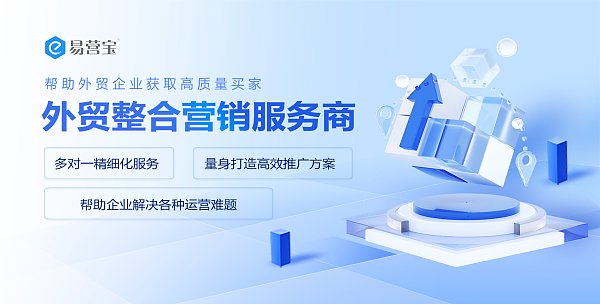
Therefore, as two powerful tools for acquiring foreign trade customers, Facebook and Google each have unique customer source channels, consulting motivations and concerns, as well as consulting styles and methods. Enterprises need to have a deep understanding of these differences and develop targeted marketing strategies and follow-up plans in order to stand out in the foreign trade market and achieve sustained growth in performance. Are you ready?
If you have any questions about the construction and operation of foreign trade websites, please contact Yiyingbao technical customer service WeChat: Ieyingbao18661939702, and the staff will answer you wholeheartedly!
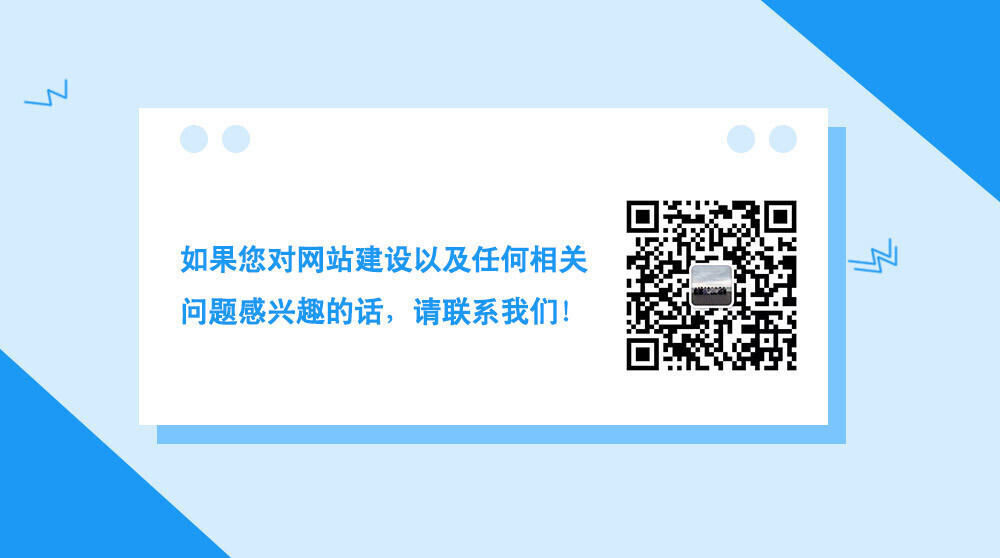
The picture resources are from the Internet. If there is any infringement, please contact 400-655-2477.
Related Articles
Related Products




